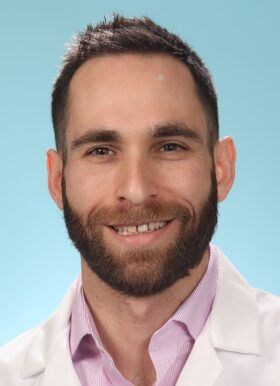KEY POINTS
- Clinical studies have shown psilocybin from “magic mushrooms” improves depression.
- Psychiatric researchers at Harvard, Yale, Washington University, Stanford and more are studying psychedelics.
- The FDA may legalize psilocybin for depression, but use for many other conditions is not far behind.
- Psilocybin has been used by indigenous groups worldwide for thousands of years.
Imagine a severely depressed woman—let’s call her Amber—who just arrived at her therapist’s office. She is curious about receiving her first dose of psilocybin in a Phase 3 clinical study.
Psilocybin is the active ingredient in “magic mushrooms.” Amber is greeted warmly by the therapist who previously met her for preparatory sessions. She gets comfortable in a large chair and shortly thereafter is given a capsule of synthetic, pharmaceutical-grade psilocybin to swallow with water. The therapist stays with Amber during her psychedelic experience, which may feature visual distortions, a sense of oneness with the universe, and sometimes challenging or distressing moments. When it’s over several hours later, Amber’s former crippling depression is gone. Not significantly decreased. Gone.
Contrast such an experience to what most severely depressed people encounter with standard treatment, which is psychotherapy and antidepressants, both of which take months to affect patients, and some patients do not respond to any treatment. So why aren’t mental health professionals massively adopting magic mushrooms to cure their patients?
Primarily because the drug is illegal under federal law, although it’s under study by researchers. This post provides a brief overview of psilocybin as a treatment for major depression. Future post will review the new clinical studies evaluating psilocybin’s effects on alcohol and substance use disorders, palliative care, and anorexia nervosa.
It should be noted some cities and states have legalized the use of psilocybin mushrooms for private consumption by adults. Oregon, in 2021, was the first state to legalize mushrooms within a supervised wellness framework. However, in 2024, after an increase in overdose deaths (mostly from fentanyl) and crime, Oregon recriminalized drug use, reversing Proposition 110, but Proposition 109 licensed facilities and wellness, the non-medical model for psilocybin remains.
Many other states are considering decriminalization of psilocybin. However, city and state initiatives violate existing federal law. In addition, they are typically not intended for the treatment of patients with mental illnesses, and such services are not covered under patient health insurance plans. Also, no one should attempt to treat themselves for psychiatric problems without the assistance of a mental health professional.
Psilocybin Is Not New
Psilocybin is derived from the fungi Psilocybe cubensis, Psilocybe mexicana, and related species. Magic mushrooms have been used for thousands of years in religious rituals by indigenous people worldwide and as treatments for physical ailments. There are more than 300 species of psilocybin-containing mushrooms, and 13 are listed as having been used by indigenous people. The fungi are believed to be 65 million years old.
Possible Effects of Psilocybin
While under the influence of the drug, individuals might internally explore their thoughts, emotions, and past experiences. This may lead to deep insights or a sense of connection with oneself or the world around you. The effects of the drug may start within 30 to 90 minutes and last several hours. During this time, people often experience intense changes in perception, mood, and thinking. After the experience, many people report feeling relief from depression symptoms, sometimes lasting weeks or even months. It’s important to note that complete relief isn’t a guaranteed outcome, and the experience also can be intense, upsetting, and potentially challenging. That’s why having a supportive environment and guidance from a trained professional is crucial.
Studies of Psilocybin and Depression
Synthetic forms of psilocybin have been studied for safety and efficacy in treating depression. In the largest clinical study to date, a randomized controlled trial of psilocybin with 233 participants, those with treatment-resistant depression received a single administration of 25 mg of psilocybin with psychological support, compared to subjects who received a 1 mg dose that acted as a placebo. The subjects who received 25 mg experienced significantly lower depression scores at three weeks vs baseline, in many cases, the benefits were sustained at three months.
In another study, a meta-analysis comprised of 436 subjects that included the above study found that people with secondary depression (depression caused by another issue, such as cancer or another life-threatening illness), as well as people who previously used the drug, were significantly more responsive than others. The researchers provided preparatory sessions and a non-traditional environment, which might be difficult or costly to replicate in a non-research environment. The subjects showed significant remission from their depression.
In another study, conducted in Switzerland, of 52 clinically depressed individuals, the researchers found that, 14 days after a single dose of psilocybin was administered in a treatment setting, depression was significantly reduced compared to placebo. Contrast such rapid recovery with months (or years) of treatment that some depressed individuals undergo in search of relief.

Many experts agree that the dose of psilocybin is important, as is the setting where it is administered. Dosages used in clinical studies vary but generally fall within a moderate range. For example, in recent research, doses ranging from around 10 to 25 milligrams of synthetic psilocybin per 70 kilograms (154 pounds) of body weight were used. However, expert Josh Siegel M.D., Ph.D., of the Washington University School of Medicine in St. Louis, Missouri, says that natural-dosed mushrooms are equal to synthesized psilocybin in efficacy for depression
